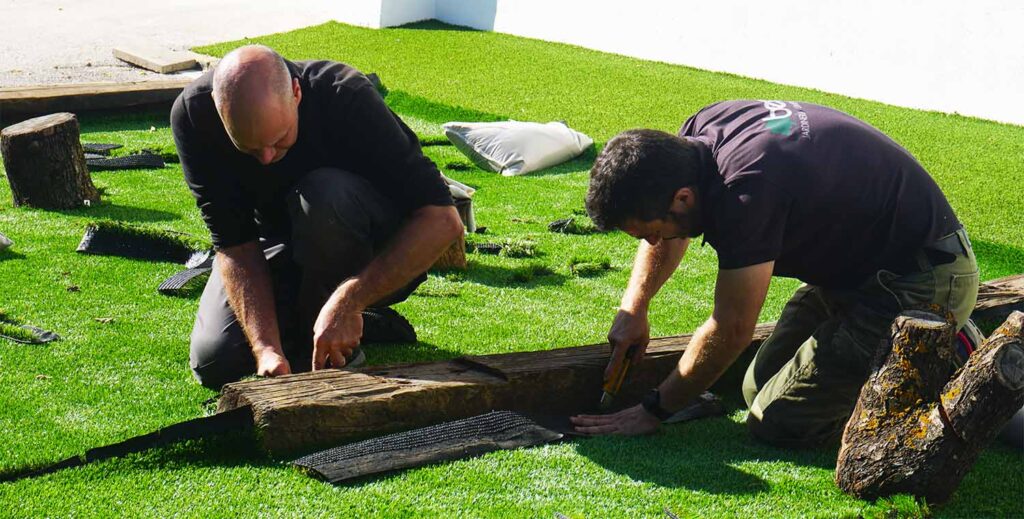Turf Filter: Function and Benefits of Artificial Turf
The turf filter is a key element in the installation and maintenance of artificial turf, designed to improve its performance and prolong its durability. This component is usually made of geotextile materials or permeable fabrics, and is placed as an intermediate layer between the ground and the artificial turf.
Functions
- Efficient drainage:
- Facilitates the flow of water into the drainage system, preventing the formation of puddles or accumulations of moisture.
- Weed prevention:
- It acts as a physical barrier that prevents the growth of unwanted vegetation from the soil to the artificial turf surface.
- Turf protection:
- It isolates the turf from the irregularities of the terrain and protects it from elements that can damage it, such as stones or roots.
- System stability:
- Helps to keep the artificial turf in place, improving its firmness and avoiding displacements.

Lawn Filter Materials
- Nonwoven geotextiles:
- Made of synthetic fibers, such as polypropylene or polyester, they offer high strength and durability, in addition to being water permeable.
- Recycled material:
- Some filters are made from recycled materials, making them a more environmentally friendly and sustainable option.
Advantages of Installing a Lawn Filter
- Increased durability of artificial turf:
- Protects the system from possible damage caused by soil elements.
- Lower maintenance:
- Prevents weed growth, reducing cleaning and maintenance tasks.
- All-weather performance:
- Ensures efficient drainage, even under heavy rainfall conditions, avoiding problems such as waterlogging.
- More efficient installation:
- Improves ground leveling and facilitates the artificial turf installation process.
How to Choose the Right Lawn Filter
- Climate and conditions of use:
- In areas of high rainfall, choose a filter with high drainage capacity.
- Type of soil:
- In soils with a high presence of weeds, select a coarser and more resistant filter.
- Compatibility with turf:
- Check with the artificial turf manufacturer to ensure that the filter is compatible with the model chosen.
Conclusion
The turf filter is an essential element to ensure that the artificial turf performs optimally, both in terms of functionality and aesthetics. Its installation not only improves drainage and prevents weed problems, but also helps to extend the life of the artificial turf and reduce maintenance.











